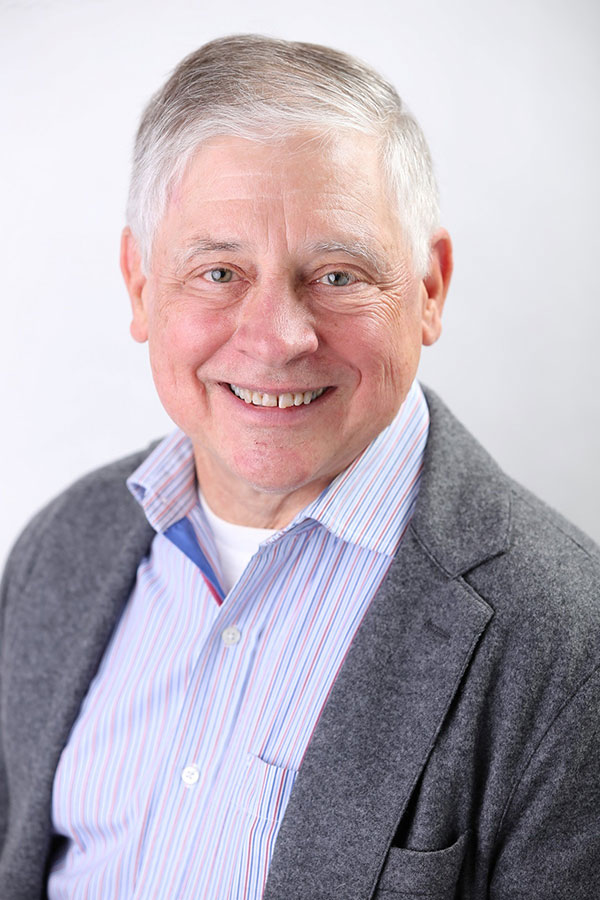
My journey through grief began…
Grief, of all sorts, can play tricks on your brain, overload your emotions and overwhelm your heart. For some people, it is easier to just contain the emotional mess in a compartment in the deep recesses of the mind, stuffing the grief into a corner, never to be visited again. But grief lingers and when left unattended, it becomes infectious like a wound that will not heal. The longer grief is neglected, it can negatively affect your health, your relationships and even other aspects of your life. It is your decision to address your grief that leads to healing.
I know, because that was what happened to me (and I have seen it many times the last 18 years working in grief service).
I was a family man. I married my high school sweetheart, Nancy. I followed my father into architectural design and eventually into construction. I became a father to a son and a daughter. Life was good. With logic and purpose, I planned and designed my desired life. Nothing could have prepared us for the call that early November morning that said to come to the county line where the authorities would escort my wife and I to the hospital.
Our daughter, Leah, was a senior in high school. That morning, I knocked on her bedroom door to make sure she was up and getting ready for school. She said she was, and I went to work. She usually drove herself to school. But this day, she didn’t make it. To this day, we do not know why she ran off the road.
A week later, we had to choose to let our daughter go.
It was a bewildering time. We were faced with an unimaginable challenge and we lacked the tools to help each other. As Nancy was going through her own grief process, I was doing what I felt was right…be strong, contain my feelings in silence, and mimic the socially accepted grief responses for our supportive friends and loved ones. My fear was if I showed emotion of any kind, it would make me appear weak and vulnerable. Instead of facing the painful, unimaginable, heart-wrenching emotions that were stacked on top of each other, it was easier to tuck it all way, never to be felt again.
To hurry back into normality, I went back to work, almost immediately. But there wasn’t a normal to return to. Work had changed for me. The meaning of life had changed for me. I had changed. The things that were important just weeks before, just weren’t important anymore. While I was going through the motions, I began to question my career, my work, and even my colleagues. I was numb and lost interest in the day to day. I couldn’t feel my feelings. I didn’t know how to feel my feelings. And I surely didn’t know how to share what I was feeling.
Even though my perfectly designed life was turned upside-down, I kept soldiering on.
The more I attempted to suppress the grief, the guilt, and the sadness—the more it percolated just under the surface. The feelings just grew louder and more insistent. I felt like I was going to explode.
I had to do something or else I felt I would never return.
I began with a private counselor. I was able to complete my grief processing once I found the Grief Recovery Method (GRM). I was awed with the knowledge that grief can accumulate throughout a lifetime and how it can impact one’s life and relationships. What encouraged me was that I could heal from this tragic family event. Developed by an engineer, GRM helped me logically understand how to identify, process and communicate my feelings through an action-based approach. Step-by-step, I could address the small unmanageable feelings and the “un-communicated bits” until everything was out in the open.
After going through my journey, I saw others struggling with their grief. I understood what they were going through, (even though everyone’s journey is unique) and knew I wanted to help them reduce their overwhelming sense of loss. I decided to become a Certified Grief Recovery Method Specialist.
With the help of the GRM program, I use simple tasks that help identify, unpack and share the feelings you have buried and ignored. The goals are easy to understand and measurable. The action-based approach has been tried and tested in many different grief scenarios successfully
over 35 years. It works.
And it can work for you.
For Nancy and I, it took time. We made it through the loss of our child together, each in our own way. After 18 years, we are not completely without grief for our daughter. It would be unrealistic to ever strive for that as a goal. Instead, we have learned a new language for managing and feeling our emotions so we can live a full life while Being With Grief.

